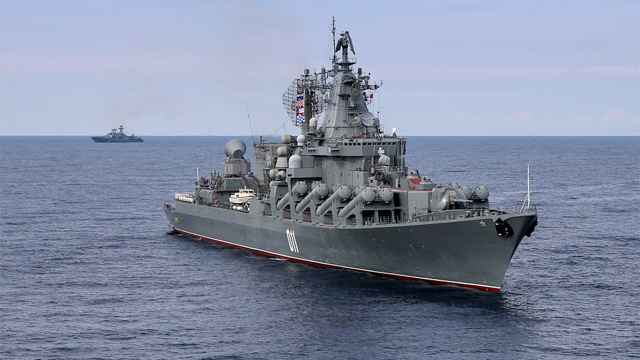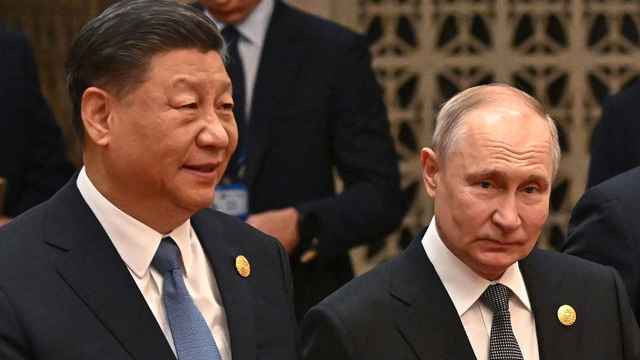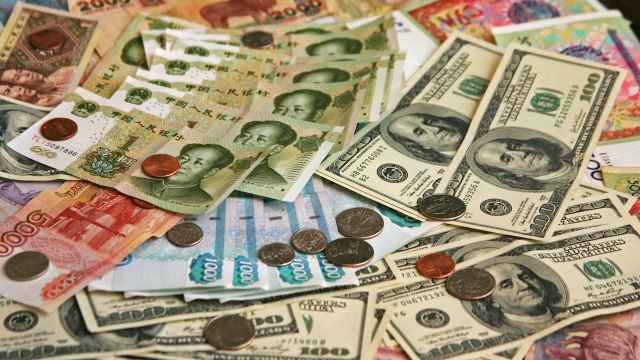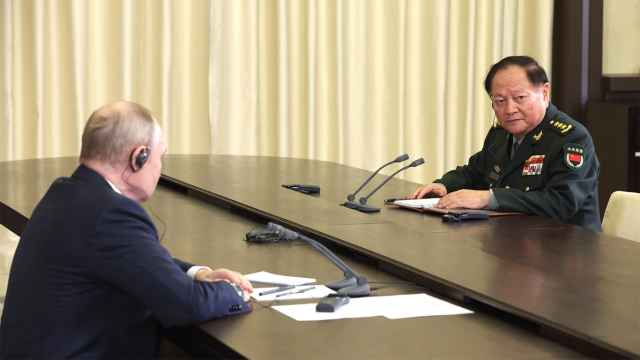The latest sanctions under discussion in the European Commission since May 8 would target several Chinese companies involved in supplying dual-use components to Russia. Those companies include several semiconductor producers that have already been sanctioned by the United States, such as 3HC Semiconductors and King-Pai Technology.
International sanctions regulators are likely to increase scrutiny this year, in particular of Chinese companies, many of which continue to operate in Russia, unlike their Western counterparts. The exodus of over 1,000 multinationals since Feb. 2022 in protest against Moscow’s invasion of Ukraine was prompted mainly by reputational rather than sanctions-related concerns. While some high-profile Chinese businesses that are facing sanctions pressure have limited their exposure to Russia, most Chinese companies that were already working in Russia have remained silent about the war, and some have even increased their presence.
Chinese business seems to be following the same pattern it learned during the previous eight years of working under Russian sanctions. Wherever possible, Chinese companies are taking advantage of the short-term benefits of the Russian market, while striving to comply with international sanctions.
In some unsanctioned sectors of the Russian market, Chinese brands are taking advantage of the reduced competition. Unlike companies from the West, Chinese businesses do not face significant reputational pressure to withdraw. On the contrary, at least two Chinese tech giants — Lenovo and DiDi — faced a backlash on Chinese social media after it was reported that they planned to leave Russia in 2022. As a result, certain segments of the Russian consumer market saw a distinct increase in the proportion of Chinese goods in 2022.
The Russian car market is dominated by Chinese brands as of last year, when only fourteen out of sixty car brands remained on the Russian market: eleven Chinese and three local. In March 2023, the creation of an Association of Chinese Automakers was announced to help systematize their entry onto the Russian market. According to Boris Titov, chairman of the China-Russia Friendship Committee, the association is also expected to help reduce nontariff import barriers for Chinese producers and facilitate the localization of their production in Russia.
In 2022, Chinese models accounted for 20% of new car sales (in terms of units) in Russia: a major increase from about 6% in 2021. By some estimates, the share of Chinese car sales on the Russian market could reach 40% in 2023, despite their rising prices for Russian consumers. At least two new Chinese car brands — Hongqi, a luxury brand of cars originally produced only for the Chinese nomenklatura, and Omoda, a subsidiary of the Chery car brand created specifically for the Russian market — are set to arrive in Russia this year.
At the end of 2022, major Russian retailers reported that Chinese household appliance producers were now leading the washing machine, refrigerator, personal laptop and smartphone segments. These reports are consistent with Chinese export data, which shows a 35.5% increase in washing machine exports and a 6.4% increase in refrigerator exports to Russia in 2022 compared with the previous year.
Some Chinese companies are continuing with localization plans in Russia. Haier, a leading producer of household appliances, has confirmed its intention to complete the delayed construction of its fourth factory in Russia. In June 2022, Haier received concessional financing worth 250 million rubles (about $3.1 million) from VEB, a Russian state-owned development bank that was sanctioned in February–March 2022. In the meantime, the existing Haier refrigerator factory in Russia appears to have met demand, as the brand accounted for over 20% of the refrigerator market in Russia last year.
After Apple and Samsung withdrew from the Russian market, Chinese smartphones became the dominant force in single-gadget sales there, accounting for 70% of the market in 2022. According to data from the biggest retailers, the leaders were Xiaomi, Realme, and Tecno — though not Huawei, one of China’s biggest tech producers.
Like other Chinese companies, Huawei has stayed silent on the war in Ukraine. Yet some reports suggest that the company effectively quit the Russian market as early as in March 2022, shortly after the first sanctions were imposed on Moscow. Without making any statements on the matter, Huawei simply stopped fulfilling its supply contracts with Russia.
In May 2022, Russia’s Digital Development Ministry expressed concern that Huawei — one of the biggest suppliers of base stations to Russia, with a market share of about 30% — had stopped communicating with its clients in Russia. By that summer, Russian media reported that Huawei had begun closing its retail stores in Russia, both offline and online. Some mall operators filed lawsuits against the Chinese giant, alleging violations of rental agreements. Huawei said it had closed the stores due to a lack of products, but did not provide any official explanation for having halted supplies to Russia.
At the same time, Huawei tried to take advantage of the situation on the Russian job market. With many skilled professionals having become available after their employers’ exits from Russia, Huawei increased its talent acquisition efforts there in mid-2022, in particular for its R&D department. In other words, although Huawei is no longer commercially exposed to Russia, it continues to benefit from a pool of engineering talent that will likely contribute to its innovative development worldwide.
The main difference between Huawei and other Chinese tech brands that continue to do business in Russia is that Huawei has long been subject to trade restrictions and sanctions on the global market. In 2019, Washington banned Huawei from buying components and technology in the United States, which limited the company’s access to semiconductors. In addition, major economies including the United States, Australia, New Zealand, Canada, Japan, Taiwan, the UK, Germany, and France have introduced various levels of restrictions on Huawei’s access to their 5G markets. Huawei appears reluctant to increase international scrutiny by staying in the Russian market, which constituted about 2% of the company’s global revenue in 2021.
The Chinese drone producer DJI, which has been subject to U.S. export and investment bans since 2020, also came under international scrutiny in March 2022 when Ukrainian Deputy Prime Minister Mykhailo Fedorov said that DJI’s products were being used by the Russian army in Ukraine. At first, the drone maker rejected those claims, but less than a month later, it announced the suspension of its Russian operations.
Global Chinese financial businesses face similar challenges. UnionPay, a Chinese payment system that was considered a lifeline for many Russians following the exit of Visa and MasterCard in March 2022, curtailed its exposure to sanctioned banks in Russia. Two leading Chinese banks — ICBC and Bank of China — stopped operations entirely in Russia and Belarus in the spring of 2022, while two China-led development institutions — the New Development Bank and the Asian Infrastructure Development Bank — also curtailed Russia’s access to their financing in 2022.
Sanctions are also preventing some Chinese companies from continuing partnerships in Russia. In September 2022, Weichai Group, a state-owned producer of diesel engines, halted supplies to its Russian truck maker partner Kamaz, which had been sanctioned by the U.S. and EU in June 2022. Reuters reported that the supply restrictions followed a warning over secondary sanctions issued by the Chinese government to all state-owned enterprises working with Russia. In September 2022, the two companies’ joint venture, Kamaz Weichai LLC, was renamed Volzhskiye Industrial Engines LLC, excluding any mention of the Chinese involvement.
Sanctions risks also appear to have deterred the already limited number of Chinese investors in Russia — even the state companies that had previously led the way. In 2022, Russia saw no major new Chinese investment, despite Beijing’s increased financing of Belt and Road projects in other countries.
In March 2022, Sinopec, one of the biggest investors in the Russian energy sector, froze negotiations on its planned $500 million investment in a petrochemical factory in Russia. Once again, Reuters reported that Sinopec’s decision had been prompted by the Chinese government’s instructions to state-owned companies over the risks of cooperation with Russia. Sinopec’s partner in the planned project was due to be Sibur, whose minority shareholder, Gennady Timchenko, has been under U.S. sanctions since 2014, and was added to the EU and UK sanctions lists in 2022.
With pressure from sanctions building for Russia, and Beijing’s own tensions with the West growing, it is going to be increasingly difficult for Chinese businesses to keep flying under the sanctions radar. The trend of some high-profile Chinese companies limiting their exposure to Russia appears to be spilling over to state-owned enterprises, which have traditionally been seen as less vulnerable to sanctions risks and more willing to invest in Russia.
Others, however, are learning to adjust. In the first quarter of 2023, China’s exports to Russia grew by an astonishing 67.2%. Before 2022, Chinese state-owned energy companies dominated Beijing’s economic engagement with Moscow. Today, private consumer-oriented companies and regional producers with limited international exposure appear to be taking the lead.
This article was originally published by The Carnegie Endowment for International Peace.
A Message from The Moscow Times:
Dear readers,
We are facing unprecedented challenges. Russia's Prosecutor General's Office has designated The Moscow Times as an "undesirable" organization, criminalizing our work and putting our staff at risk of prosecution. This follows our earlier unjust labeling as a "foreign agent."
These actions are direct attempts to silence independent journalism in Russia. The authorities claim our work "discredits the decisions of the Russian leadership." We see things differently: we strive to provide accurate, unbiased reporting on Russia.
We, the journalists of The Moscow Times, refuse to be silenced. But to continue our work, we need your help.
Your support, no matter how small, makes a world of difference. If you can, please support us monthly starting from just $2. It's quick to set up, and every contribution makes a significant impact.
By supporting The Moscow Times, you're defending open, independent journalism in the face of repression. Thank you for standing with us.
Remind me later.








